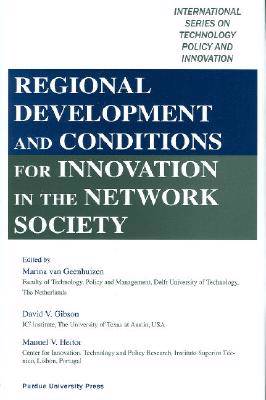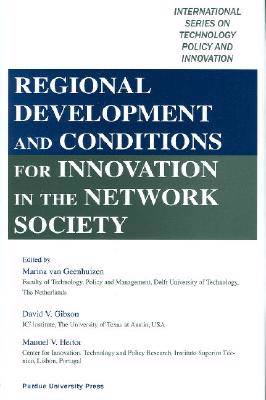
- Retrait gratuit dans votre magasin Club
- 7.000.000 titres dans notre catalogue
- Payer en toute sécurité
- Toujours un magasin près de chez vous
- Retrait gratuit dans votre magasin Club
- 7.000.000 titres dans notre catalogue
- Payer en toute sécurité
- Toujours un magasin près de chez vous
Regional Development and Conditions for Innovation in the Network Society
Marina Van Geenhuizen, Manuel V. HeitorDescription
Regional Development and Conditions for Innovation in the Network Society looks at fundamental changes at the start of the new millennium as innovation is gaining increasing importance for local economic prosperity and the emergence of learning societies. While much attention has been devoted to information and communication technologies, this analysis shows that innovation infrastructures should be understood as a broad framework for social and economic activities that transcends any specific technology and should be tied to attitudes and behaviors oriented towards the exploitation of change by adding value. This work builds on the idea of inclusive learning, which entails a process of shared prosperity across the globe following local-specific conditions. Inclusive learning also argues that it is crucial to understand the features of knowledge-induced growth in rich countries, as well as the challenges and opportunities for late-industrialized and less developed countries. To achieve these objectives, the relative importance of infrastructures and incentives is considered an increasingly important role in institutions towards the development of social capital. Learning societies will increasingly rely on "distributed knowledge bases," as a systematically coherent set of knowledge, maintained across an economically and/or socially integrated set of agents and institutions.
Spécifications
Parties prenantes
- Auteur(s) :
- Editeur:
Contenu
- Nombre de pages :
- 366
- Langue:
- Anglais
- Collection :
Caractéristiques
- EAN:
- 9781557533555
- Date de parution :
- 25-12-05
- Format:
- Livre relié
- Format numérique:
- Genaaid
- Dimensions :
- 160 mm x 234 mm
- Poids :
- 748 g







